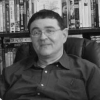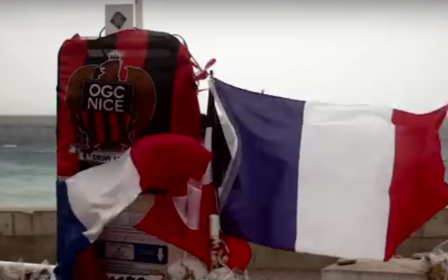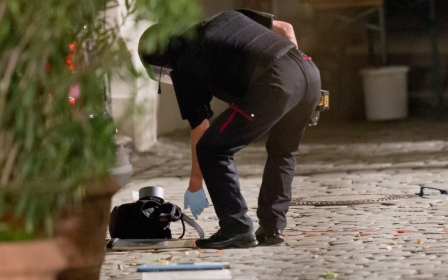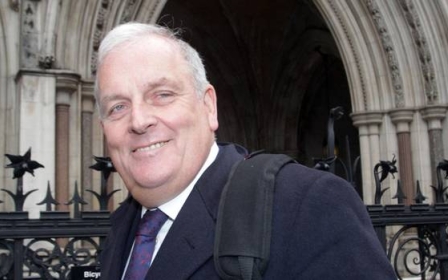The Nice attacker was not an Islamist, a jihadist or even a ‘terrorist’
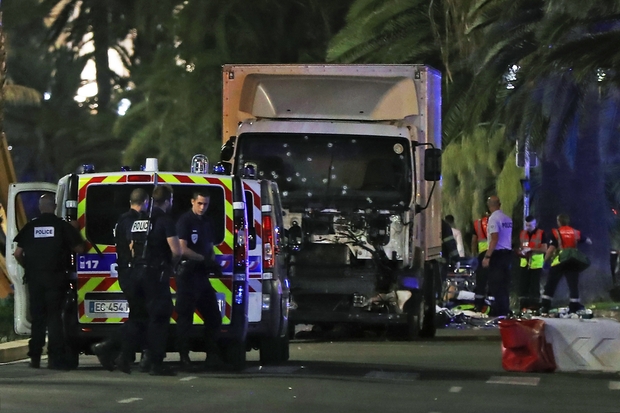
The Islamic State (IS), our political leaders and many well-known so-called experts share the same interest: trying to turn the mass murder in Nice on the evening of 14 July into a “terrorist, Islamist, jihadist” act.
Despite enormous resources dedicated to the investigation of the tragedy, during which a man drove a truck into a crowd, killing 84 people, the French government has not yet been able to produce one piece of evidence to prove that the attacker was in fact linked to IS.
We still have no proof that Mohamed Lahouaiej Bouhlel was an IS sympathiser, a disciple of the "jihadist cause", a "radical islamist", or even practising Islam for that matter.
Quite the opposite: all of the testimonies that were gathered - from his father, uncle, brother and neighbours - state the same thing - he had no interest whatsoever in religious matters; he was a drunkard, a drug addict, and he had a history of domestic violence; and he had never read the Koran or observed Ramadan, nor had he ever set a foot in a mosque.
A neighbour claimed that he smelled of alcohol during Ramadan. Another said he defecated everywhere in the building and chopped her granddaughter’s dolls into pieces. His flat has been thoroughly searched, not one copy of a Koran was found.
To cut a long story short, by the end of last June, he was still not practicing Islam. However, experts, like Pierre Conesa, a former senior civil servant the Department of Defence and lecturer at Sciences Po, assert that he was a ‘salafist’.
Bouhlel's neighbours, his parents and his colleagues described him as depressed, emotionally disturbed, unbalanced and a "crazy person" - and he had a psychiatric history that backs up those accounts.
He had been depressed for many years, he was living by himself, he was ordered not to approach his wife and kids, he was divorcing and had to pay for child support - facts that might send many people over the edge. He was well-known by the police for assaults, threats and delinquency. He had a criminal record and had been convicted for a six-month conditional sentence. All of this contributes to a difficult life and future, especially if you are a foreigner.
He was also broke and was denied a consumer loan for insolvency. Before the attack, he had not even been able to withdraw 1,000 euros.
He was bisexual. Many selfies of him with his male and female lovers were found in his cell phone. One of his regular lovers was a 73 year-old man.
Apparently, IS is recruiting openly bi or gay Salafist Islamist men. They must be quite desperate.
And yet, all our political leaders have been talking about "Islamist terrorism" since the night of the attack, even before IS claimed the attack on the morning of 16 July. Around 200 investigators have been scrutinising his life since the attack, but no link to IS or any jihadist movement whatsoever has yet been found.
There’s a real cognitive dissonance that has clearly emerged from the official story spread by the media and the government and also from IS and its claim of the attack.
Self-interest?
In fact, IS, our political leaders, many TV experts and even serious intellectuals (like Gilles Kepel), other so-called experts, former intelligence officials and representative of private security services, all share a common interest: to make this mass murder suicide act look like an "Islamist, jihadist terrorist" attack, driven by "ideological" reasons - political and/or religious - even though there is no evidence of such a thing in this man’s act.
The attack allows the French government to pass Orwellian laws and decrees that are tantamount to a police state, which would have never been accepted by the population under normal circumstances.
It's another opportunity for IS, which is drawing on all available means to keep itself afloat as its terroritory shrinks in Syria and Iraq, to keep the world believing that it is everywhere, strong and invincible even though it is weakening.
For the media, the story fuels the fires of sensationalism. It is good for the headlines. The media feeds off the horror, literally off the blood of those victims, like vampires.
Experts, serious or not, are making money out of these acts. The more “jihadists” they “name”, the more TV appearances and press coverage they will get. Yet, in France, there are not so many of them so they are basically self-invented and, like IS, it is good to have a reason to talk about as many attacks as possible. The more fighters there are, the more people are going to get scared of "Islamism" so the more we will see these fake "jihadism experts" like Mohammed Sifaoui or Claude Moniquet on TV.
Facts that fit
The lies the media are telling us about Bouhlel's "quick radicalisation" don't even make sense.
The few elements of explanation that Prosecutor François Molin was able to gather that would back up this nonsense are: "testimony" from "someone" who would have said that Bouhlel intended to grow a religious beard the very last week before the attack (but this is not even a sure thing!) and websites about "radicalised Islam" (and who doesn’t search for those nowadays?), and other gory sites, not related to Islam, that Bouhlel had searched.
This method rings a bell: in The Stranger by Albert Camus, the prosecutor arbitrarily links together carefully chosen evidence from the life of Meursault, the main character, in order to produce a harmonised story about a murderer. A story that was fake. This nonsense of alleged websites brought forth by the prosecutor in order to prove Bouhlel's "radicalisation" - videos of people getting beheaded, car crashes, mass murder acts in the US, and other things that cannot be named (porn, without a doubt) - is more a sign of a morbid attraction for death and violence rather than the sign of a so-called religion conversion.
As usual, the media trims reported information based on what officials have already stated - and even more so if it fits their editorial choice.
36 hours later
A “soldier of Daesh” would have at least mentioned something about IS or Allah. He would have yelled "Allahou Akbar!" or would have left something behind him after the attack to attest to his status, his new self. Or to give sense to his act, to show his "purification", his allegiance to IS.
But he left nothing linking him to IS, despite having planned the attack down to the last detail. All that remained were compromising selfies left on his cell phone. What a strange “jihadist”.
The attack by a young Afghan man that happened in a train in Germany is proving the contrary. It was in fact "signed": video, flag and oath of allegiance etc… As did the Kouachi brothers, who murdered people at the Charlie Hebdo head office in January 2015, and the commandos who committed the attacks on 13 November in Paris. More recently, the young man who killed a priest in a church in Normandy did the same.
In this hysterical environment, radicalisation expert Farhad Khosrokhavar bravely asserts that we need to be reasonable and admit that "this man had nothing to do with Daesh".
"There’s an ideological reason behind ‘regular’ Islamist terrorism that is completely absent when it comes to Mohamed Lahouaiej Bouhlel. It was a terrorism act minus an ideological and organised terror aspect in it," he wrote.
Many have started to point out the same things. However, we need to go further and admit that, until this day, there is no political, no geopolitical or not even religious motive to Bouhlel's act. It becomes more obvious each day that this man was not "radicalised". He was no Salafist, no Islamist and not even a jihadist, until his very last day.
And so if there is no ideological reason behind it, as Khosrokhavar says, then it is no longer terrorism, for terrorism means there is a cause behind it, something to fight in the name of.
The truth is often simpler than those made up stories, as seen in Camus’ book. Various parties have desperately tried to put together made up evidence which has still not proved legitimate - or worst, sounds very phony.
Bouhlel was far from being a jihadist who had been brainwashed or radicalised. It was the end for him. He was broke, an outcast, rejected by his family, violent, isolated, depressed, a psycho, emotionally disturbed for many years, a sex addict and someone who had never shown an interest in religious matters and was fascinated by death.
He was not a "soldier of Daesh", nor an "Islamist" quickly converted, as asserted by the government which has stupidly given Daesh what it wants. He was one of those many psychos who one day decides to end it all by mass murdering people and killing himself.
There are sadly many of those cases: school shootings on American campuses like Columbine and mass murderers, like the young Iranian-German Ali David Sonboly in Bavaria, who killed nine people before killing himself, or the depressed pilot who committed suicide last March and brought down all of his passengers with him.
Thirty six hours after the attack, noticing the number of people who were killed and how heavily covered this event had been, IS seized the opportunity and claimed that it was behind the attack - in a very short hard-to-believe press release which didn’t even mention the name of the attacker. And that's all there is to it. The group used the attack to rub salt in the wounds, to finally claim "victory" since it had been a while and to cause even greater anguish in French society.
Let’s be smart for once and call this attack for what it is - mass murder - instead of helping IS in its propaganda and misinformation campaign.
- Alain Gabon is a university professor and French studies senior lecturer in the US. He heads the French programme at Wesleyan College in Virginia. He has also written many academic articles and has held conferences about modern day France and Islam in Europe and around the world for specialised academic journals, think tanks such as the Cordoba Foundation in the UK and also media such as Saphirnews or Les Cahiers de l’Islam.
The opinions expressed in this article are those of the author and do not necessarily represent those of the Middle East Eye.
Photo: policemen and first aids next to the truck that was used to charge into the crowd during the July 14th attack (AFP).
This story originally ran on MEE's French website and translated by Nassima Demiche.
New MEE newsletter: Jerusalem Dispatch
Sign up to get the latest insights and analysis on Israel-Palestine, alongside Turkey Unpacked and other MEE newsletters
Middle East Eye delivers independent and unrivalled coverage and analysis of the Middle East, North Africa and beyond. To learn more about republishing this content and the associated fees, please fill out this form. More about MEE can be found here.


